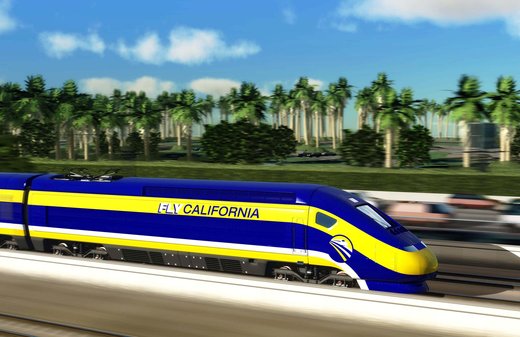1 May 2013
Work on the first section of California’s high-speed rail line has been won by a consortium of local contractors Tutor Perini and Parsons, whose bid was nearly only half the estimated cost of building the 25-mile stretch.
The award was made in spite of the team having the lowest technical score of five bids.
The bid was also $100 million below the price offered by the second place consortium, led by Spain’s Dragados and Korea’s Samsung.
The consortium, which also includes Texan firm Zachry, won the work on the strength of a $985-million bid that was about $800 million less than the estimated cost of the design-and-build contract of between $1.2 billion and $1.8 billion.
The California High Speed Rail Authority said in March last year that the request for proposal (RFP) would be conducted in two steps, with three design-build teams selected following a technical evaluation.
Only then would those three undergo a combined technical and price evaluation, the authority said.
But in making the award based on what it called “apparent value”, on 12 April, the authority made cost the greater determinant, with a point value of 70%, with technical soundness counting for 30%.

Local JV’s winning bid had lowest technical score but came far under the estimated cost.
With its low bid, the Perini/Zachy/Parsons JV was a clear favourite over bids from competing JVs Dragados/Samsung ($1.08 billion), Ferrovial/Acciona ($1.36 billion), Fluor/Skanska/PCL ($1.26 billion), and Kiewit/Granite/Comsa ($1.53 billion).
On 22 April the chief executive of the rail authority, Jeff Morales, denied media speculation that the rules had been changed to favour local bidders.
He said changes to the assessment criteria that occurred since March 2012 complied with the law and were transparent.
“Any suggestion or implication that decisions were made with particular bidders in mind is completely without merit and has no basis in fact,” he wrote in a letter to California state senate and assembly officials.
It has taken 17 years to put the required funding of $10 billion in place, and to win political approval from the Californian electorate. The first section to be constructed will be the 29-mile Madera to Fresno segment.
Construction of the entire 520-mile rail system is scheduled to finish in 2028, with service to begin in 2029, the rail authority says.
More on the bid results here.






